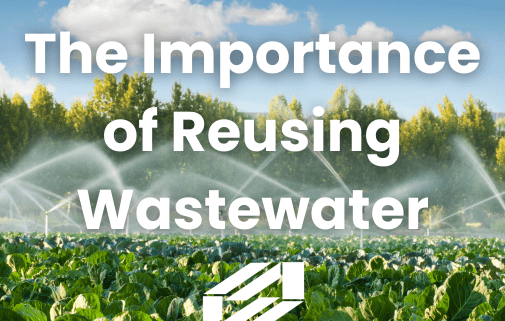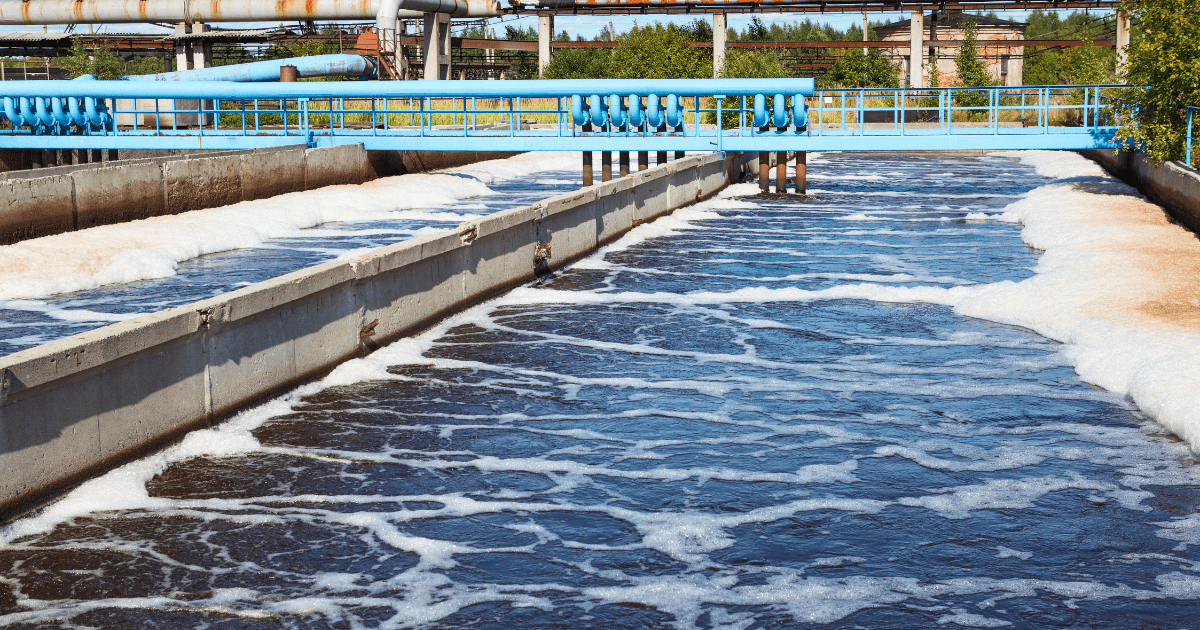The Importance of Reusing Wastewater
In an era where global water scarcity poses an increasingly critical challenge, the significance of reusing wastewater emerges as a crucial solution with environmental benefits. As increasing populations and industrial activities strain limited water resources, the conventional linear model of water consumption and disposal becomes unsustainable. The practice of wastewater reuse not only addresses the escalating demand for freshwater but also mitigates the adverse ecological impacts associated with conventional disposal methods. By transforming wastewater into a valuable resource, we not only strengthen water security but also contribute to a more sustainable environment, fostering a balance between human needs and the health of our ecosystems. This shift towards wastewater reuse embodies a crucial step in crafting a more sustainable future for our planet.
Below are just some examples of how wastewater can be reused:
Agricultural Irrigation:
Agricultural irrigation involves the utilisation of treated wastewater to nourish crops with essential nutrients, contributing to sustainable farming practices. By incorporating treated wastewater into the irrigation process, valuable freshwater resources are conserved, and the dependence on traditional irrigation water is reduced. This approach not only supports the growth of crops by supplying vital nutrients but also highlights an effort to address water shortage concerns in agriculture.
Industrial Processes:
Industrial processes across diverse sectors require substantial water usage. Treated wastewater emerges as a viable solution in these contexts, mitigating the demand on freshwater sources. In particular, industries like manufacturing and energy production can optimise sustainability by incorporating treated wastewater into cooling processes. This dual-purpose approach not only addresses the water needs of industrial operations but also contributes to the conservation of freshwater resources.
Landscaping and Recreational Uses:
Reused water plays a huge role in enhancing sustainability in landscaping, parks, golf courses, and various recreational areas by serving as an alternative water source. This practice significantly decreases the reliance on potable water for non-potable purposes. By incorporating reused water into the irrigation and maintenance of such spaces, a more efficient and responsible water management strategy is achieved, contributing to the conservation of valuable drinking water resources.
Urban and Industrial Cooling:
In urban and industrial environments, the utilisation of treated wastewater for cooling purposes proves to be a beneficial practice, notably in power plants and manufacturing facilities. By incorporating treated wastewater into the cooling processes of these settings, there is a dual advantage of efficiently meeting cooling requirements while simultaneously alleviating the strain on freshwater resources. This approach highlights a sustainable and resource-conscious strategy.
The imperative of reusing wastewater stands out as a solution to address the escalating global water scarcity crisis. Faced with the challenges of growing populations and expanding industrial activities, the conventional linear model of water consumption and disposal proves unsustainable. Wastewater reuse emerges as a crucial step towards crafting a sustainable future, offering not only a response to the rising demand for freshwater but also a means to mitigate ecological impacts associated with traditional disposal methods. The versatility of wastewater reuse is evident in applications such as agricultural irrigation, industrial processes, landscaping, and urban cooling, showcasing its potential to alleviate water shortage concerns across diverse sectors. Embracing wastewater reuse fosters sustainable farming practices, reduces the strain on freshwater sources in industries, enhances water management in recreational areas, and optimises cooling processes in urban environments. This multifaceted approach not only conserves precious freshwater resources but also exemplifies a commitment to responsible and resource-conscious strategies, guiding us towards a more resilient and environmentally conscious future in the face of global challenges.









